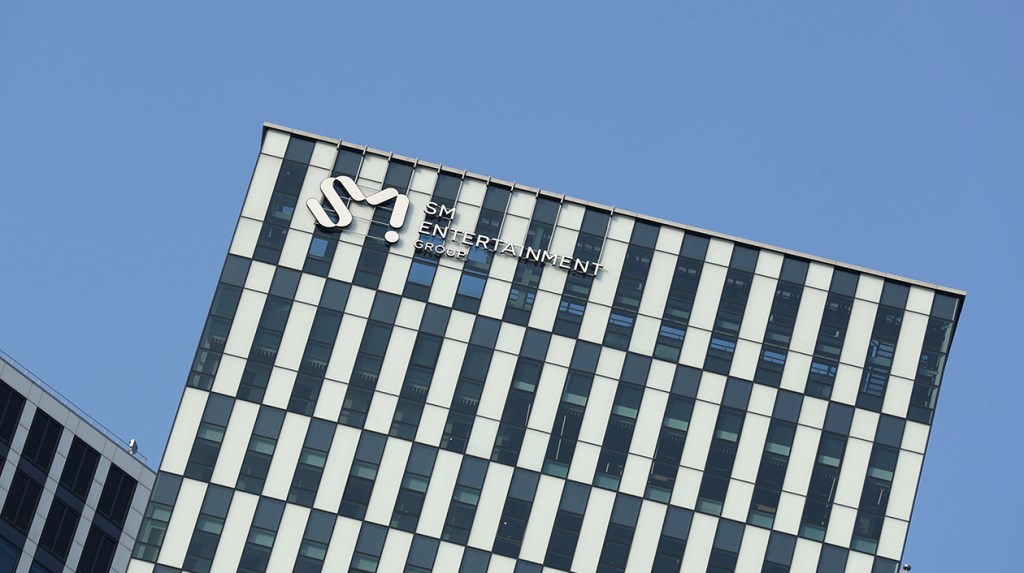K-pop music companies SM Entertainment and HYBE shone brightly in the stock market this week, demonstrating resilience amidst the widespread decline of many stocks due to ongoing uncertainties surrounding U.S. tariff policy and alarming new data indicating higher-than-anticipated inflation rates. This performance not only highlights the strength of the K-pop industry but also reflects the growing global influence of South Korean entertainment, even in challenging economic conditions.
SM Entertainment, the powerhouse behind popular groups like NCT Dream and RIIZE, emerged as the standout performer of the week, with shares soaring by 6.7% to reach 107,000 KRW (approximately $72.91). This remarkable increase propelled the company’s year-to-date gain to an impressive 47.4%, the highest among all music stocks. This surge underscores the company’s robust market position and the increasing demand for K-pop music, signaling a bright future for its ongoing projects and artist developments.
HYBE, the management company of globally renowned artists such as BTS and its solo members, experienced a 3.7% increase in its stock price, reaching 240,500 KRW (approximately $163.87). On March 27, the company announced an exciting release: BTS’s beloved tracks like “Dynamite” and “Butter” will feature in the upcoming album Lullaby Renditions of BTS, set to be released on April 4 by Rockabye Baby! Music. This announcement contributed to HYBE’s impressive 19.7% rise in shares year-to-date, making it the fifth-best performing music stock this year.
Despite a challenging week for most stocks and the broader market, the K-pop sector showed notable resilience. YG Entertainment, home to icons like BLACKPINK and the new group BABYMONSTER, saw its shares rise by 3.3% to 63,500 KRW (approximately $43.27). Meanwhile, JYP Entertainment maintained stability, with its stock remaining unchanged at 61,300 KRW (about $41.77). This performance reflects the strength and loyalty of K-pop fandoms, which continue to fuel the success of these entertainment companies.
Looking beyond South Korea, music stocks globally have been grappling with economic headwinds and uncertainties that have negatively impacted the performance of stocks in recent weeks. The Billboard Global Music Index (BGMI), which tracks the performance of 20 major music companies, declined by 2.9% to 2,459.98, marking its fourth drop in six weeks. With only eight of those companies finishing the week positively, the BGMI has entered correction territory, reflecting a 10.7% decline since mid-February. Despite recent challenges, the first six weeks of 2025 contributed to a year-to-date increase of 15.8% and a remarkable 40.4% rise over the past year.
On March 28, overall stock markets faced another setback following the release of the core personal consumption expenditures price index, a key measure monitored closely by the U.S. Federal Reserve, which rose by 0.4% in February. This led to a 12-month inflation rate of 2.8%, both figures surpassing analysts’ expectations. The tech-heavy Nasdaq composite index ended the week down 2.6%, extending its year-to-date loss to 11.7%. The S&P 500 also fell by 1.5%, while the FTSE 100 in the UK experienced a slight increase of 0.1%. In South Korea, the KOSPI composite index dropped 3.2%, and China’s SSE Composite Index fell by 0.4%, reflecting widespread market volatility.
The BGMI’s decline was exacerbated by a 6.5% drop in Spotify shares and a 4.2% decrease from the German concert promoter CTS Eventim. Additionally, Warner Music Group, one of the index’s largest companies, saw a 2.7% decrease, closing at $31.56. These movements indicate the challenges facing major players in the global music industry amidst fluctuating market conditions.
Tencent Music Entertainment (TME) saw a positive turnaround, gaining 2.7% to reach $14.38 after Deutsche Bank upgraded its rating on TME shares from hold to buy. Meanwhile, Universal Music Group experienced a 2.0% rise to 25.99 euros (approximately $28.12) after Wells Fargo upgraded its shares from equal weight to overweight, raising the price target to 33 euros (around $35.70) from 28 euros (approximately $30.29). This reflects investor confidence in these companies’ potential for growth and stability.
Among the week’s notable declines, LiveOne, a music streaming service, suffered the most significant drop, plummeting 14.1%. The company reported on March 26 that its subscriber base and ad-supported users surpassed 1.4 million, yet this positive news was overshadowed by market reactions. Such fluctuations highlight the volatile nature of the streaming industry and the challenges faced by emerging platforms in a competitive landscape.
iHeartMedia, a prominent radio company, saw its shares fall by 6.8%, resulting in a year-to-date loss of 23.0%. Similarly, satellite broadcaster SiriusXM experienced a 3.1% decrease, bringing its stock price down to $22.75, although it remains up by 1.7% for the year 2025. These trends illustrate the shifting dynamics within the media and entertainment sectors as companies navigate through economic uncertainties and audience engagement challenges.







